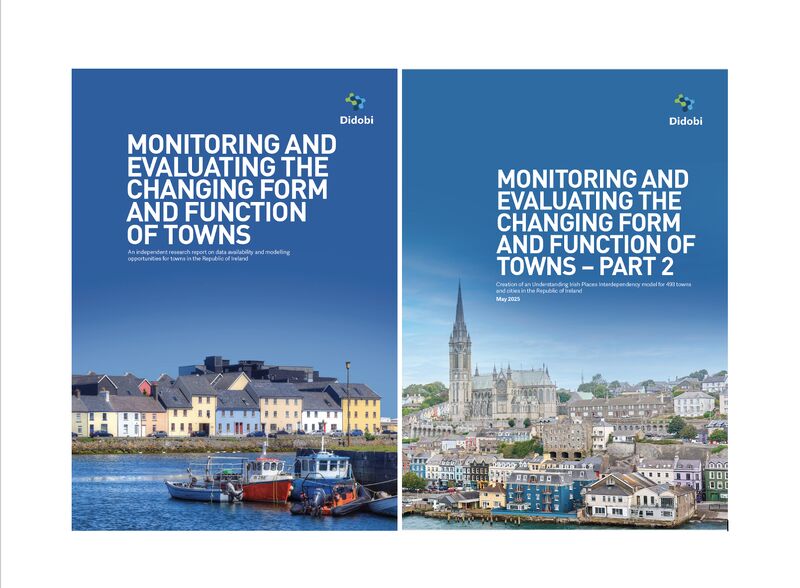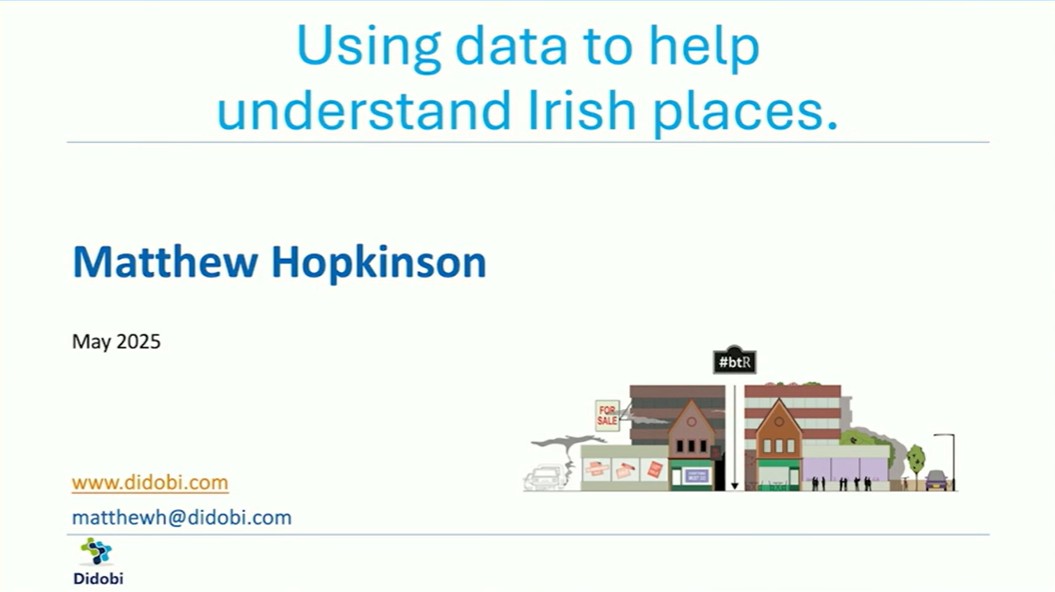
How not to waste £675m and how best to create better towns and High Streets
As you will be aware our towns are facing some of the greatest challenges in terms of their form and function for the 21st Century. These challenges come in many forms be they economic such as empty shops or taxation, social as seen in the rise in rough sleeping or loneliness, or environmental such as air quality and recycling. There are many issues which are interlinked and interdependent but are often dealt with within separate silos due to political or organisational structures, funding channels or human nature where rights and responsibilities may not run in tandem.

In December 2018 off the back of the High Street report by Sir John Timpson and his team, the UK Government announced a fund for ‘High Streets’ which exceeded anyone’s predictions or possibly dreams of £675M. The reality is that towns and the stakeholders within them have been in the eye of the storm for over decade now when in 2009 over 800 Woolworths closed in one day, austerity kicked in and long lease terms, many with upward only rent reviews, led to a significant rise in business rates along with rising market rents being fuelled by Private Equity hunger to grow and expand retail and leisure businesses yet in a market that was changing so dramatically that many of these investments have failed, seen significant retraction or left businesses or assets with debts that are never likely to be repaid. You could argue that we have in part created the issues that face towns today and that if a more holistic and evidence led approach had been taken across all areas we could have seen what was coming and mitigated some of the results with early intervention.
“Forewarned is forearmed”.
There has not been a lack of interest in this topic from business, the media, the public and more recently local and central government. Reviews have been written, Save the High Street campaigns, Independents Day launched and numerous TV and radio documentaries on the plight of towns and their people. I hope that 2019 is the year where we move on from analysis of the issues by the many ‘experts’ to action of the issues by investors, key stakeholder agencies, local government and local communities. Towns are key settlements for the future health and prosperity of our communities and more so than ever before with the current population growth, an ageing population needing access to more services, health and community, than ever before.
“Now is the Time for Towns!”
I have been very fortunate over the last decade to track the fortunes of towns up and down the country through my time working at The Local Data Company (LDC) and growing its unique database of all the shops, their churn rates and vacancy rates along with building a Health Index of 3,000 places in partnership with Morgan Stanley or a Diversity Index with the Oxford Institute of Retail Management (OXIRM) . In that time, I forged strong links with a number of universities which resulted in delivering annual reports on Welsh (in partnership with Cardiff University) and Scotland’s Towns Partnership Towns (in partnership with Stirling University) as well as the regular bi-annual reports that we produced at LDC and the LDC market events based around report findings. The great thing about all of this was that the data was the best available with regards the field research methodology of LDC and secondly by working with academics we could adopt a wholly independent and objective view on the data and what it was saying about the places and the market overall.
“Being independent, evidence-led and objective is critical to how we should look to manage our towns.”
To seize this opportunity for towns I believe that the approach needs to be radically different to anything in the past. There are many organisations out there who have worked hard in their own way, with and without public funds, to resolve the issues our towns face. The reality is that this approach has not worked and not delivered what many towns need and when they needed it. Political agendas may in part be to blame but when one looks at this issue it is something that towns need to be supported on for decades rather than elected terms. A strong vision and strategy for any town will illustrate this. Where public or private money is involved there needs to be a clear Return on Investment (ROI) be it economic, social or environmental. We need to adopt a more robust and commercial approach to what we do if we are to achieve what is required as well as get strong partnerships with the private sector whose DNA is based on ROI. All too often a lack of understanding or too much assumption causes conflict, weak or non-existent relationships between the public and private sector stakeholders in our towns.
“Assumption is the enemy of communication.”
There is a serious danger when large funds are announced by Government that many hares are set running and everyone’s expectations are raised, much work is done in pursuit of the funding and only a minority receive it to the huge disappointment of the many. Such unfilled expectations from towns and their communities can be destructive for community cohesion going forward. Whilst money oils the wheels it is the wheels that actually get things done and in this case the wheels are the existing structures, communities, local government and commercial organisations. The focus must be on the wheels and not the oil or one might say chasing a rainbow! There are examples of this both nationally and internationally and many books have been written on community organising and community leadership. The approach has to be from the bottom up and not the top down (Upside-down government to quote Sir John Timpson). Hyperlocal, localism, community or whatever your preferred term is but it should come from the towns themselves and towns where they have a strong and community involved leadership group that covers all aspect of what makes a town great. It is not about bringing people together who shout the loudest, agree with each other or engage out of a vested interest but from a group that represents the key aspects of a town. Often from a perceived conflict between people or organisations you can create a strong team when they focus on a problem that is common to both. This means young and old people, commercial and social enterprises, infrastructure and education, health and law enforcement. By bringing the right people from the right areas together you create the energy, experience and influence to create change and that does not require money but leadership.
“The wisdom of crowds.”
To do this I do not believe it is about building another quango or extending funding to an existing one but about creating a structure at a national or regional level which is replicated town by town. This National Towns Board for want of a better term, would then work with the existing organisations and networks to support them in delivering the change required and sourcing the expertise and funds to support sound visions and strategies where money will oil the wheels to create the change as well as create commercial partnerships. We don’t need to look far as a model was created in Scotland that was created back in 2012, Scotland’s Towns Partnership. Like anything it is not perfect but it has the benefit of experience and as such is a strong case study. I have been fortunate to get to know STP through its Chair, Professor Leigh Sparks and its Chief Executive, Phil Prentice and whilst I am not advocating STP Mk2 for England what I would urge is for the High Streets Minister and his wider team including Sir John Timpson, to see how they are structured, what they have achieved and how this has not been done by throwing millions and millions of pounds at Scotland’s towns but creating a strong multi-disciplinary board, a small but effective executive team that agitate, support, challenge, advise, source and create solutions, and identify and distribute funding nationally and locally to drive Scotland’s towns forward.
This is about facilitation of many existing bodies and not execution through one single organisation as many skills are needed, many points of view and supporting each town with the relevant funding and best skill sets for them to deliver a solution or intervention. Towns are ‘for the people and of the people’ so surely, we should empower and support them to manage and lead their communities based on the needs and opportunities that each town uniquely has.
I urge the powers that be to be bold, different and inclusive in helping support England’s towns with what is the most significant sum of money to date. We need councils, communities and businesses aligned and focussed on fighting the perceived or real decline of their town and community. The wider impact economically, socially and environmentally will be realised from new and inclusive structures backed by strong leadership by all. The problems that our towns face is the responsibility for all and not just the few. We will be judged by future generations by the legacy we leave in the function and form of our towns. Let us not repeat the mistakes of the past as new challenges require new and innovative solutions. We will make mistakes along the way but let it not be said that we did not apply the best of human energy, innovation and relationships to address what is one of our most precious resources – community places.







Leave a comment: